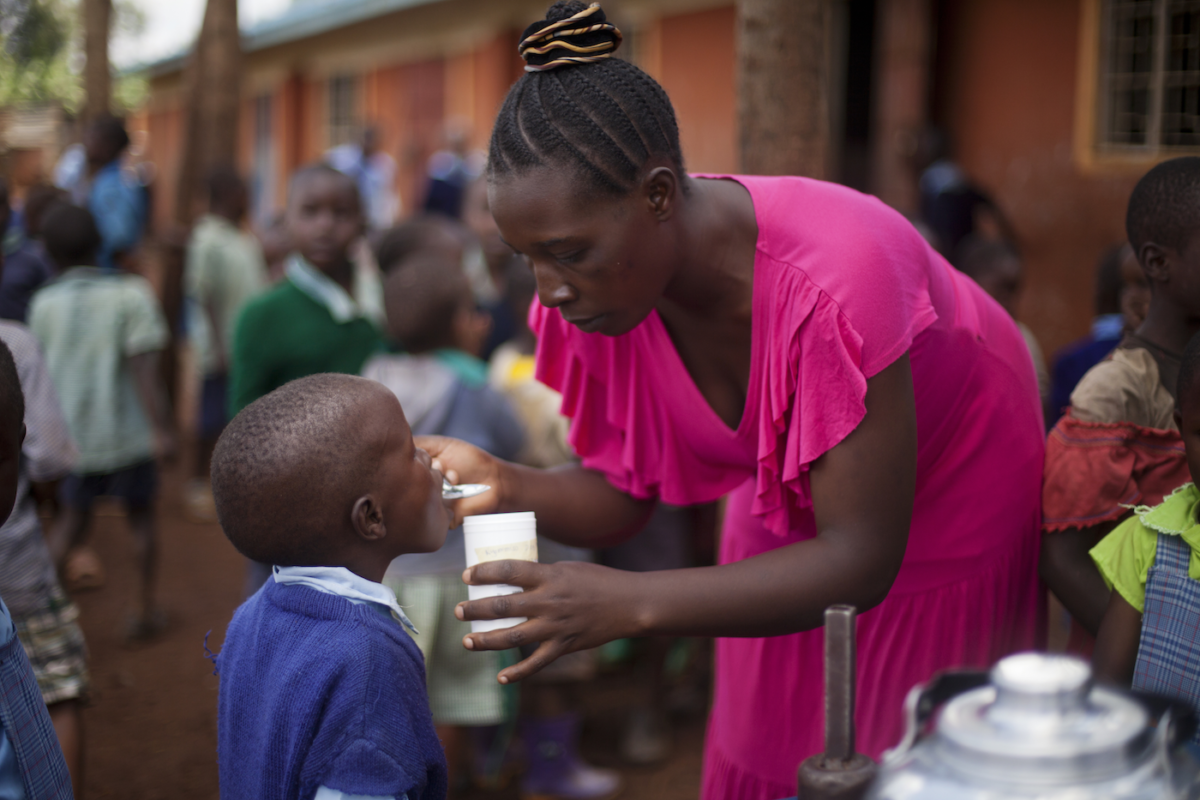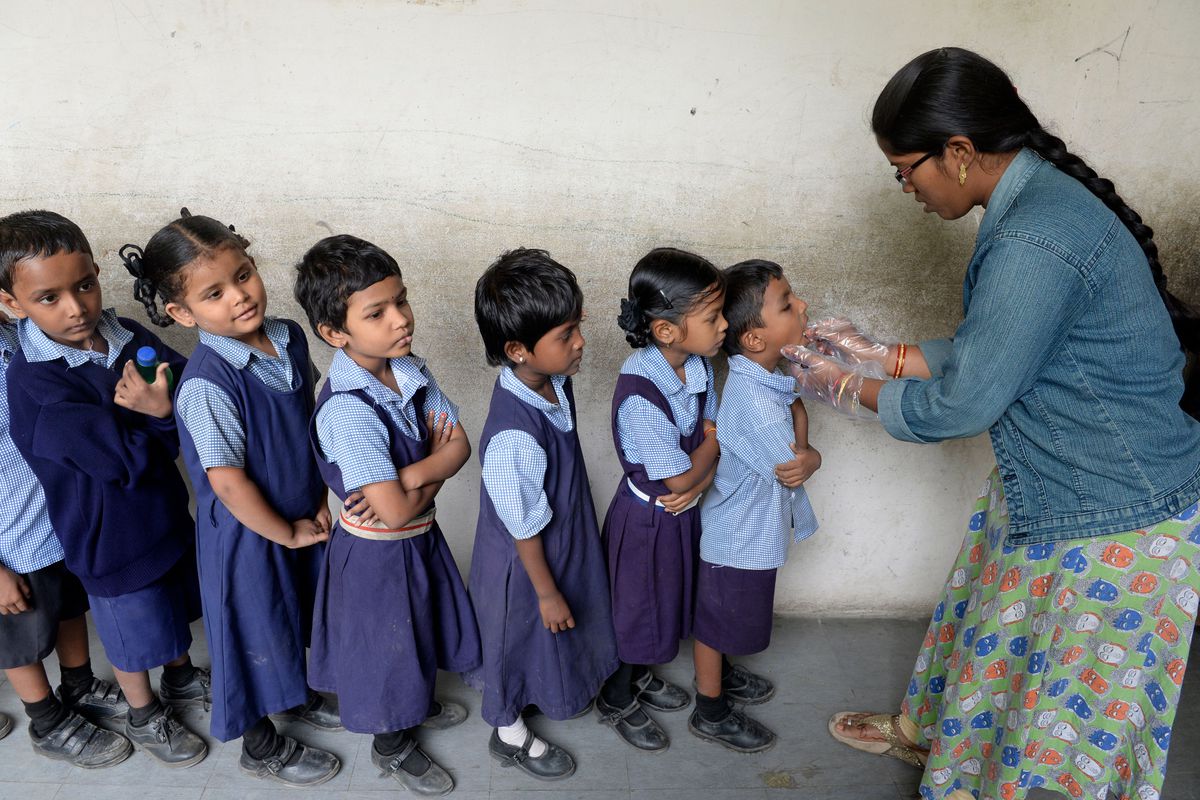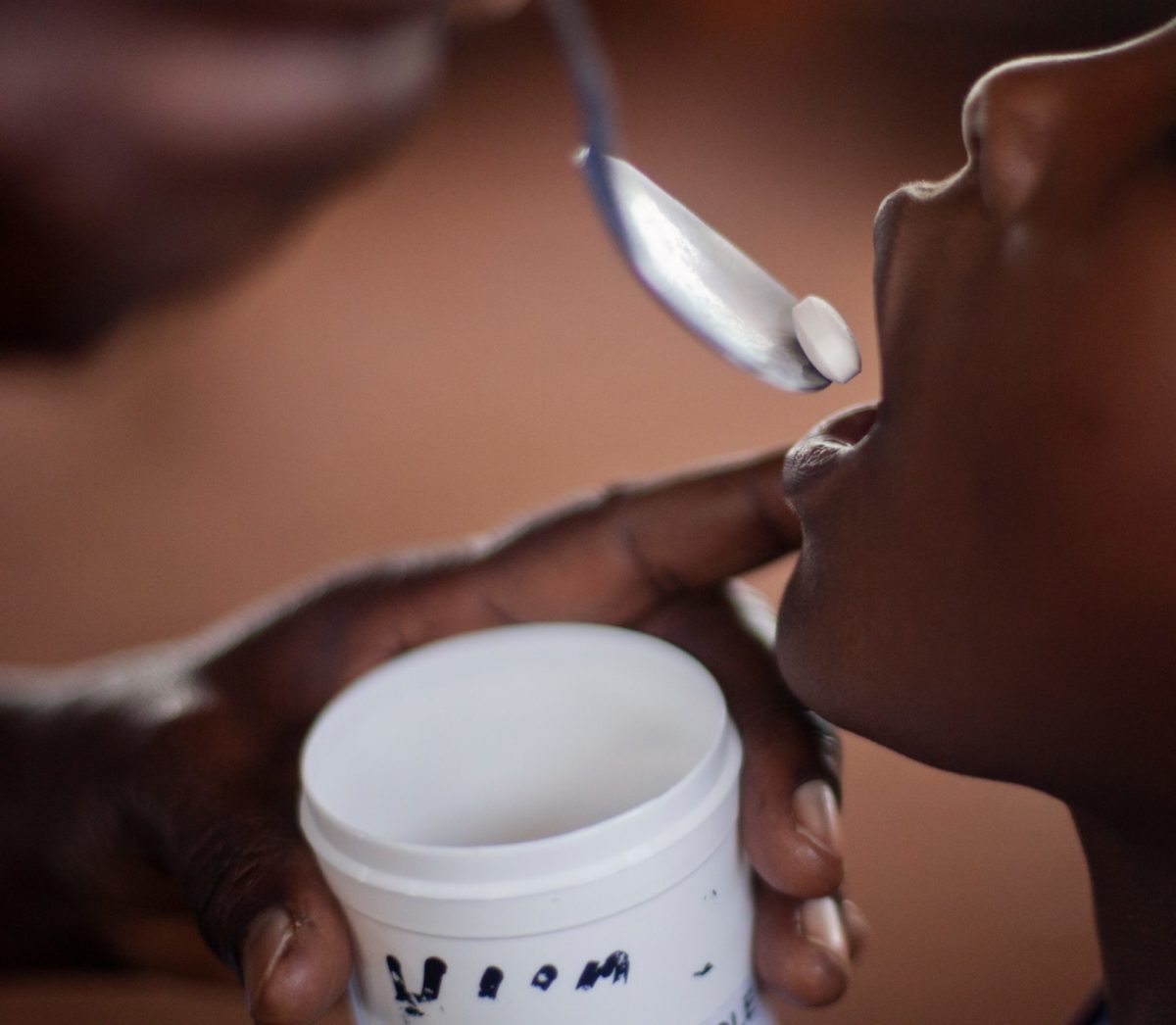Long-term Effects of Deworming in Kenya

Children receiving deworming treatment in Vihega County, Kenya. © Evidence Action
Landmark study shows that treating children for intestinal worms has lasting economic effects 20 years later.
More than 1.5 billion people—roughly 20% of the global population—are infected with the parasitic worms and schistosomiasis, according to the World Health Organization—with whole communities suffering not only from persistent illness, but also potentially from reduced educational achievement and worse economic outcomes. These infections lead to adverse health and nutritional consequences for children including stunted growth, weakness, and anemia, and may have broader immunological effects, including making individuals more prone to other infections.
A new landmark study, managed by CEGA and led by Sarah Baird (George Washington University), Joan Hamory (University of Oklahoma), Michael Kremer (University of Chicago), Edward Miguel (UC Berkeley, CEGA Faculty Co-Director), and Michael Walker (UC Berkeley, CEGA Postdoc) shows that a small investment in medication to treat worm infections (< $0.50 per child per year) in young Kenyan students has had a dramatic impact decades after the fact. Those who received the treatment for 2 to 3 years in primary school now have better jobs, higher wages and a higher standard of living, when compared to those who didn’t. In short, simple, cost-effective mass deworming programs generate remarkable rates of return in Western Kenya, and sustained deworming treatment may change the trajectory of a child’s life.
This groundbreaking study adds to the growing suite of deworming literature that has influenced policy worldwide. CEGA research from 2004 (Miguel and Kremer, 2004) and 2016 (Baird, Hicks, Kremer, Miguel, 2016) showed that mass deworming interventions in Western Kenya led to a one quarter decline in school absenteeism in the first two years of the program, and the 10-year follow-up showed improvements in self-reported health, educational attainment, and higher income among wage earners. Even untreated students reaped the health benefits of deworming as the medication kills off worms already in the body, thus reducing transmission to others in the community. This new 20-year follow-up study confirms that effects for treated individuals persist into adulthood.
The impact of this deworming research inspired the creation of the Deworm the World Initiative, managed by Evidence Action, which supports school-based deworming worldwide, and has influenced several countries to instate national school-based deworming programs. In 2019, more than 280 million children in India, Kenya, Nigeria, Ethiopia, and Pakistan received school-based deworming treatment.
Ongoing research investigates the long-term impacts of deworming on marriage, fertility, education, and a number of other domains, as well as its intergenerational effects on the children of the original beneficiaries.







